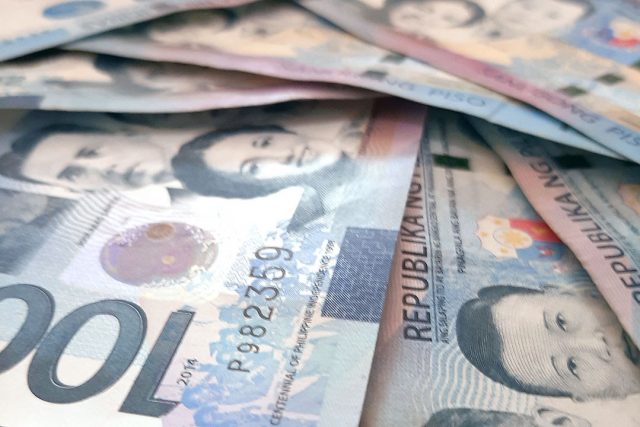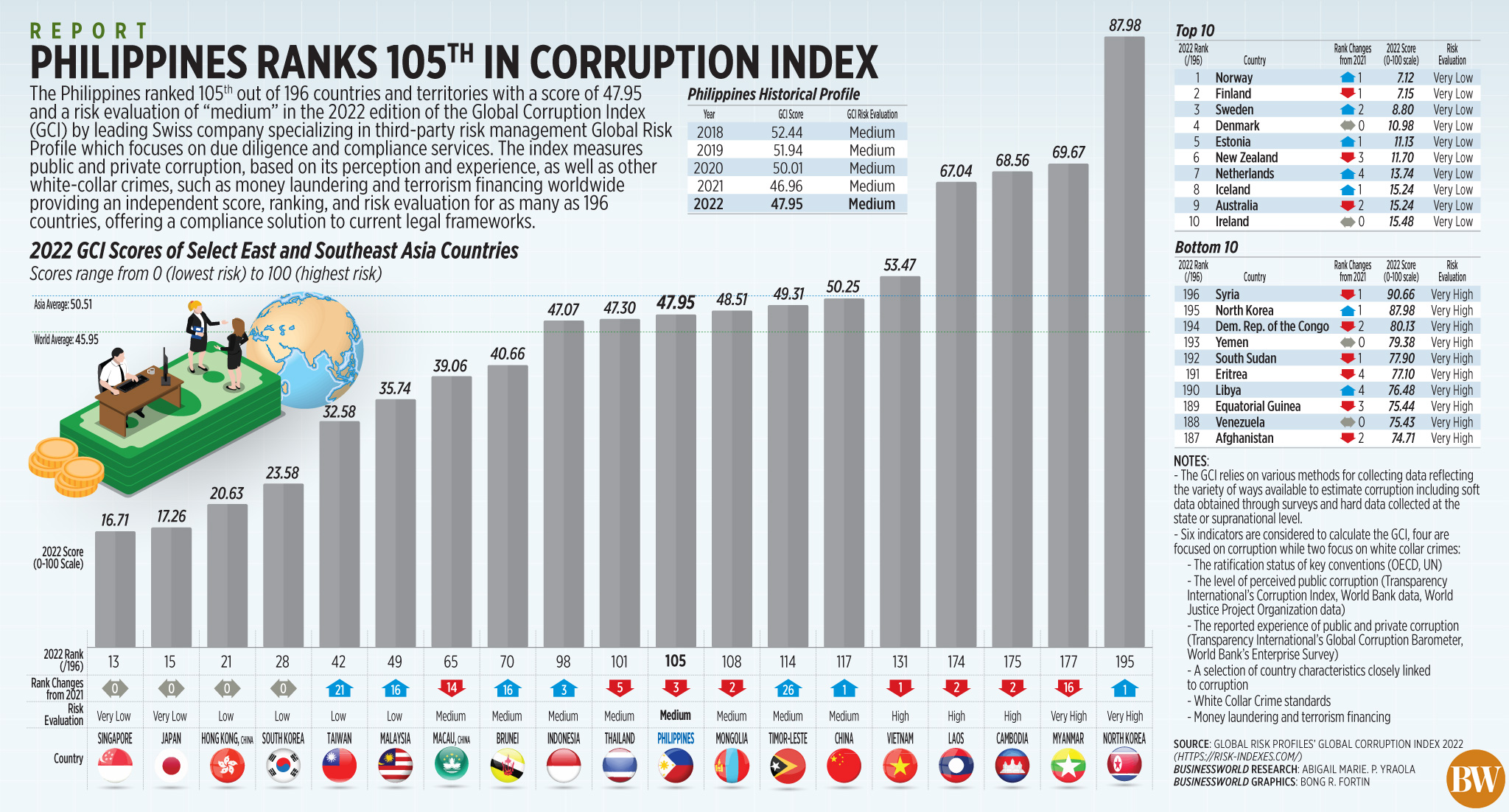PHL ranking in corruption index declines

THE PHILIPPINES slipped three places in a corruption index released by Global Risk Profile (GRP), which noted that financial aid programs during the pandemic created opportunities for corruption and bribery.
In the Global Corruption Index 2022, the Philippines ranked 105th out of 196 countries and territories. In 2021, the Philippines ranked 102nd.
This year’s report showed the Philippines had a “medium” risk level for corruption. Its overall risk score stood at 47.95, slightly higher than last year’s 46.96.
The country ranked 111th in 2020, 101st in 2019, and 108th in 2018.
The index measures public and private corruption, based on its perception and experience, as well as other white-collar crimes, such as money laundering and terrorism financing worldwide.
Among Southeast Asian countries, the Philippines lagged behind Singapore (13th), Malaysia (49th), Brunei (70th), Indonesia (98th), and Thailand (101st)
The country was ahead of Timor-Leste (114th), Vietnam (131st), Laos (174th), Cambodia (175th), and Myanmar (177th).
The Office of the Press Secretary, which is currently headed by Cheloy Velicaria-Garafil, did not immediately give comment on the report.
This comes after the Philippines’ score fell in a global bribery risk index, as its scores for government and civil service transparency saw the biggest drop.
The country also saw a decline in its ranking in an economic freedom index, which observers said reflected the weakness of domestic institutions in preventing political corruption and other irregular activities.
In its report, the GRP said the pandemic, which had unlocked loans and credit at a fast pace, “triggered new opportunities for corruption, bribery, falsification of submissions and embezzlement of public funds, therefore draining new resources.”
It noted that Europe saw a slight decline this year “maybe due to the introduction of 2020-2021 facilitated loans.”
The Philippine government implemented strict lockdowns in 2020 to curb COVID-19 infections. It distributed cash handouts for the most vulnerable sectors affected by the lockdowns.
Halsey A. Juliano, a political economy professor, said the Philippines is prone to massive corruption during emergencies or disasters.
“Development aid from funders like International Monetary Fund, World Bank, Asian Development Bank and JICA required long-term efforts at imposing accountability structures to make sure money goes where it should,” he noted.
“At the same time, joint government efforts can and have been used by local political clans as ‘patronage gifts,’” Mr. Juliano said, citing politicians’ penchant for putting their images on bags of relief goods distributed during disasters.
Maria Ela L. Atienza, who teaches politics at the University of the Philippines, said the previous administration is partly to blame for the country’s latest ranking.
“There were high-profile cases of anomalies in government transactions and procurements during the pandemic,” she said in a Viber message, citing an alleged corruption scandal involving multibillion worth of pandemic contracts awarded to Pharmally Pharmaceutical Corp. under the previous administration.
“The high-profile Pharmally investigations and the fact that the Senate did not endorse filing of cases against possible people involved because President Duterte might be investigated also showed the lack of political will on the part of officials to deal with possible cases of corruption,” Ms. Atienza said.
HUMAN RIGHTS
Meanwhile, Ms. Atienza said human rights promotion is vital in curbing corruption.
“[Respect for human rights] might have also affected perceptions about anti-corruption drives of the government, which continues to lack genuine people’s participation and feedback.”
“Domestic and international human rights advocates have criticized the deteriorating state of human rights in the Philippines,” Ms. Atienza noted. “This concern remains as the presidency has changed.” — Kyle Aristophere T. Atienza

